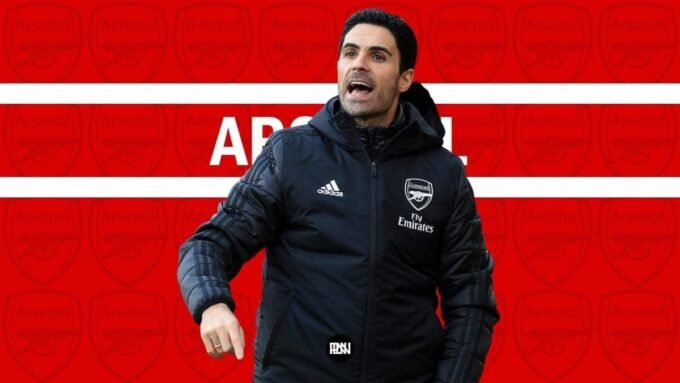I’ll admit it: I went back and watched My Cousin Vinny again recently—yes, even though everyone’s already decided it’s a classic. There’s a reason people keep returning to this one. It’s funny in a way that feels earned, not just loud. It sneaks up on you: sharp lines, little beats of awkwardness, and that kind of stubborn, goofy charm that sticks around after the credits roll.
A quick setup, because the plot isn’t what makes you remember this movie as much as the performances. Two young men—Bill Gambini (Ralph Macchio) and Stan Rothenstein (Mitchell Whitfield)—get arrested in a small Alabama town and charged with murder. The only person who shows up to defend them is Bill’s cousin Vincent “Vinny” Gambini (Joe Pesci), who has… no trial experience. None. He’s a fast-talking New Yorker with confidence, but not much courtroom know-how. He brings along his fiancée, Mona Lisa Vito (Marisa Tomei), who, by the way, ends up being the part people still talk about. And rightly so.
Also read: Mariah’s Topgolf Mishap: A Diva’s Style Statement Gone a Little Too Far?
Why the film sticks with you
There are a few things that make My Cousin Vinny more than just a courtroom comedy. First, the contrast between the characters is excellent. You’ve got Vinny, brash and hurried, trying to fake his way through legal procedure; then there’s Judge Chamberlain Haller (Fred Gwynne), who’s patient in a way that reads as weary rather than cruel. The southern small-town vibe is another layer—people who aren’t mean, per se, but they have this world-weariness and particular rhythms that Vinny just doesn’t understand. That mismatch is where much of the humor comes from.
Marisa Tomei’s performance is the other big reason the movie is remembered. At the time, some people grumbled—whispered that her Oscar was a shock. That reaction always felt a bit petty to me. Mona Lisa is remarkably specific: fast, smart, unapologetically blunt, and devastatingly practical about car engines and tire tracks. The scene where she explains automotive forensics—of all things—to Vinny and the courtroom is a delight: precise, unexpected, and it lands because it’s rooted in character, not spectacle. You believe her. And that’s what makes the film work: the actors inhabit their parts instead of performing jokes for the camera.
Tone and pacing: funny, but measured
The movie doesn’t try to be non-stop riotous. There are longish stretches of tension—the slow grind of a trial, the mundane legal rituals—and then little bursts of comedy. That pacing feels closer to how actual life works: long, awkward silences punctuated by sudden absurdity. It’s not perfect, of course. Some bits are a touch predictable, and the script sometimes leans into clichés—still, the overall mix of pathos and laughs is well judged.
Joe Pesci’s Vinny is another reason you buy into the premise. He’s abrasive, sure, but also oddly vulnerable. He’s the kind of character who would never admit he’s out of his depth—so the movie does it for him. Seeing Vinny struggle to learn legal procedure on the fly, making mistakes and then stubbornly patching them up, gives the story a messy, human center. If the film felt slick and clinical, it would lose that warmth. Thankfully, it stays a little scrappy.
Small moments, big impact
What I keep thinking about, too, are the smaller scenes that most other movies would have skipped: the way local conversation happens in the diner, or a glancing look between characters that says more than lines of dialogue. Those tiny human beats keep the story grounded. It makes the courtroom feel less like a set-piece and more like something real people would stumble through.
There’s also a humility to the movie that I appreciate. It doesn’t pretend legal drama is glamorous. It’s often procedural, messy, slow—and that’s part of the comedy. The triumph in the film isn’t some big heroic speech; it’s more like a careful, stubborn little victory. That’s quietly satisfying.
A few flaws, but nothing fatal
Look, it’s not flawless. There’s occasional romanticizing of small-town life, and a few jokes that haven’t aged perfectly. The plot can be a bit tidy in places—it wraps up more neatly than real life would—but if you forgive that, you get to enjoy the film’s many pleasures. For me, the imperfections actually help. They make it feel like someone’s telling a story they love, not trying to impress you with cleverness.
Also read: Jesse Watters: Is Fame Getting to His Head? A Look at On-Air Persona and Off-Air Habits
Why watch it now?
If you haven’t seen My Cousin Vinny in a while, or ever, it’s worth a rewatch. It’s streaming on Hulu, and it’s the kind of movie that rewards familiarity; the more you watch, the more you catch. Also, the courtroom scenes are oddly educational—if only insofar as they show how careful observation and common sense can outmaneuver bluster. Plus, it’s just consistently entertaining. You’ll laugh, you’ll wince, you might even feel protective of these clumsy, sincere characters by the end.
Final thoughts
All in all, My Cousin Vinny is a comedy that wears its heart and its smarts in equal measure. It doesn’t need to be revolutionary to be good. It’s simple, well-acted, and slightly imperfect—the kind of film I find myself recommending again and again. If you like character-driven comedies that let small, believable moments carry the weight, give it an hour and a half. Or don’t—then you’ll miss Mona Lisa’s courtroom speech, and that would be a shame.









































Leave a comment